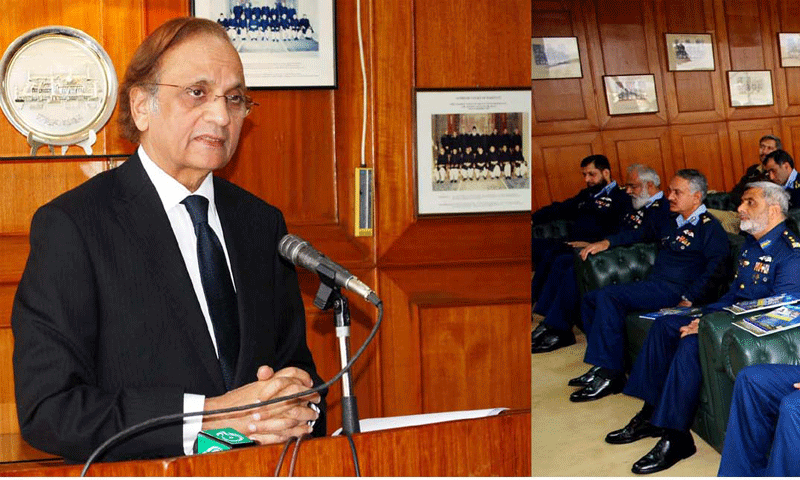CJ says nation’s morale linked to good governance

ISLAMABAD: Chief Justice Tassaduq Hussain Jillani has said that misgovernment rather than foreign invasion usually leads to collapse of nations.
“The heavy responsibility of defending the country is primarily on the shoulders of our valiant armed forces and in this endeavour the nation is fully behind them. But the morale of the nation is linked to people’s welfare, good governance and the rule of law,” the chief justice said while speaking to visiting officers of the PAF Air War College, Karachi, in the Supreme Court building here on Thursday.
“The concept of good governance and the rule of law are interrelated,” he said and added that without fair and effective judiciary one could hardly imagine good governance.
“There is broad consensus now that core principles of good governance are participation, fairness, decency, accountability, transparency and efficiency. These goals are achieved through functional institutions and it is the judiciary which ensures that each institution works within the parameters of law,” he said. “The manner in which institutions function and justice is dispensed plays a vital role in the economic development of a country. Upholding property rights, enforcing contracts between economic actors, and checking abuses of the government are different facets of the enforcement of rule of law,” the chief justice said.
He also traced successive crises involving political instability and constitutional breakdown right from the era of governor general Ghulam Muhammad to Nov 3, 2007, when state of emergency was proclaimed by former president retired Gen Pervez Musharraf and the role played by the Supreme Court in dealing with those situations.
The court always had to tread a difficult path to minimise the duration of constitutional deviation or aberration to restore the Constitution as well as the democratic system of governance in the country, the chief justice said. Each time a crisis emerged, resulting in the abrogation or suspension of the Constitution, the action came under scrutiny in the Supreme Court and the court had to enter the political arena and give an authoritative pronouncement. Undoubtedly, the judgments varied, keeping in view the peculiar facts of the cases and socio-political situation prevalent at the time, Chief Justice Jillani said.
“Thus, even when the court granted validation for the action, it always put a rider, limiting and minimising the period of constitutional deviation, and made earnest efforts to restore the Constitution, rule of law and bring back the system of democratic and parliamentary dispensation in the country,” he remarked.
“I trust that this saga is over and the era of crises and political instability is now behind us,” the chief justice said, adding that the court, in the aftermath of the victorious lawyers’ movement had embarked on the task of ensuring full and complete adherence to norms of the Constitution, supremacy of law and maintenance of rule of law in society.